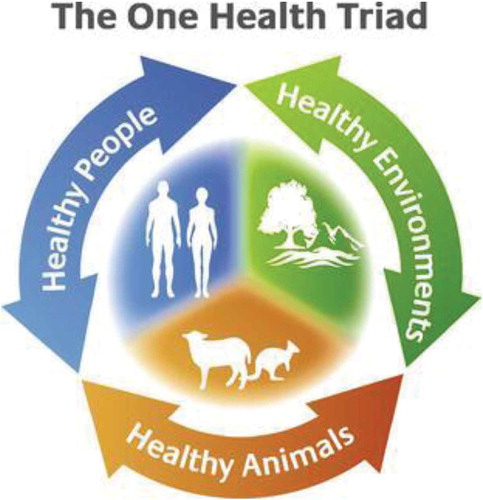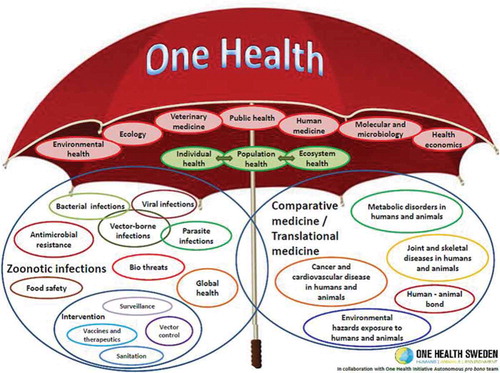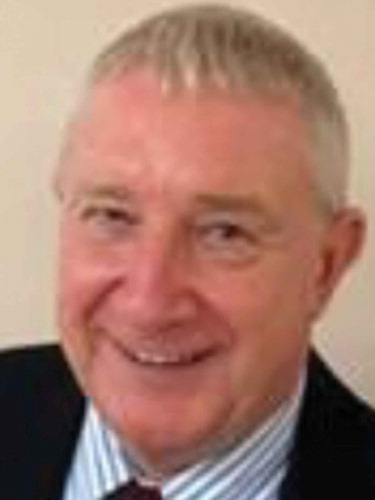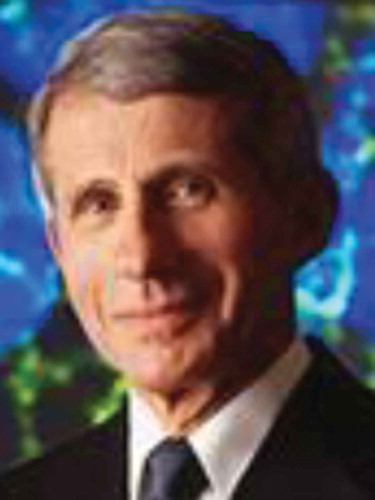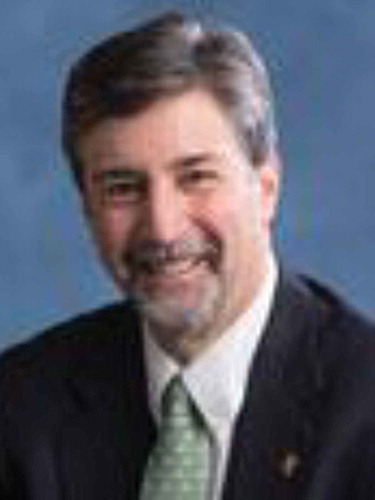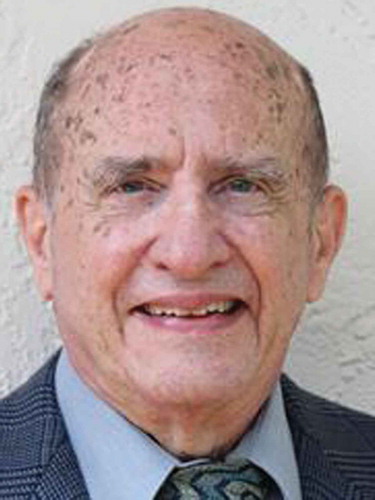‘…Whereas previous Congresses have been very good by all accounts, they have not adequately been all inclusive with respect to addressing a broad spectrum, co-equal recognition and exposure to both One Health essential priorities, i.e. global public health and global clinical health considerations, among a few others. Frankly, this has been known to occur due to concerns about securing adequate funding for public health research projects vis-à-vis clinical health missions, etc. In addition, there have been justifiable complaints regarding the meetings being “too veterinarian oriented without enough physician and other health science professional representations.” Hopefully, this next Congress will demonstrate a more ecumenical approach while addressing the issue of attracting a broader spectrum of health science oriented attendees. Human, animal and environmental health (eco-health) are in dire need of such a far reaching protocol endeavor. Spotlighted International Congresses need to become free from sectarian predominance, or even the hint of tribalism. They need to take the high road: begin “appealing to their better angels” in the true spirit of “One World-One Medicine-One Health.” An accurate and complete mosaic image of one health requires that all pieces be present and in place.’
Laudably, the One Health Platform https://mailchi.mp/onehealthplatform/world-one-health-congress-free-lecture-202629?e=49188b2102, a leading international One Health organization has undertaken the important role of organizing One Health congresses on a biennial basis. Members of the One Health Initiative team have worked proudly with this exceptional organization’s leadership at the fifth (5th) Congress in Saskatoon, Canada in June 2018 https://onehealthplatform.com/iohc/committees/organizing-executive-board. The sixth (6th) Congress is to be held in Edinburgh, Scotland, UK June 15–18, 2020. This promises to be a landmark event.
To date, there have been five (5) International One Health Congress meetings worldwide. Ostensibly their aim has been to foster and educate the international communities about the recognized real world and future visionary values attainable once the One Health approach is indeed implemented worldwide, i.e. ‘… in every Middlesex Village and farm’[Citation1].
Most One Health supporters/advocates http://www.onehealthinitiative.com/supporters.php believe that to mean principally: ‘One Health is the collaborative efforts of multiple disciplines working locally, nationally, and globally to attain optimal health for people, animals, plants and our environment.’ and ‘One Health implementation will help protect and/or save untold millions of lives in our generation and for those to come.’ [Citation2–Citation5]
and
About the one health initiative
The One Health concept is a worldwide strategy for expanding interdisciplinary collaborations and communications in all aspects of health care for humans, animals and the environment. The synergism achieved will advance health care for the 21st century and beyond by accelerating biomedical research discoveries, enhancing public health efficacy, expeditiously expanding the scientific knowledge base, and improving medical education and clinical care. When properly implemented, it will help protect and save untold millions of lives in our present and future generations.
Incidentally, from time to time, some reputable critics of the future of One Health have stated that ‘1) there’s too much infighting among groups, 2) there’s a lack of evidence about its utility, and 3) it has no strategic goals…’ while most others disagree vociferously. The One Health Initiative team certainly falls in the latter category. Notwithstanding some respected, well intentioned independent commentators and publications holding these negative opinions, the previous five (5) Congresses stand as powerful repudiations. Clearly, the One Health approach has been more or less viable and sustainable for centuries and continues to be even more so to a greater extent today and in future as international societal knowledge progresses. Moreover, the following evidence of longstanding, repetitive, overwhelming denunciations of such a negative premise has been well documented and endorsed by many prominent individuals worldwide as well as reputable group, organizational and institutional One Health websites, professional journals and books over the 20th century and past decades, particularly including the early 21st century, for example:
One Health Advancements/justifications for implementation (43 examples – tip of the iceberg!):
Current notable open-access One Health Journals: http://www.onehealthinitiative.com/journals.php
Some recognized One Health Links and Books listed: http://www.onehealthinitiative.com/animalHumans.php
One Health Endorsements:
Specifically see high profile celebrity public health and clinical health testimonials:
Two recent ‘one health’ Benchmark comments from leading international physician organization & research VIPs
Friday, May 11, 2018
Dr. Garth Manning WONCA Chief Executive Officer (CEO)
WONCA (World organization of family doctors [physicians]) NEWSLETTER POSTs ‘One Health’ member notice
“WONCA http://www.globalfamilydoctor.com/and One Health – ‘WONCA, the World Organisation of Family Doctors [physicians], now has over 118 Member Organizations in 131 countries and territories with membership of about 500,000 family doctors [physicians]’
‘WONCA is pleased to be associated with One Health, which is the collaborative efforts of multiple disciplines working locally, nationally, and globally to attain optimal health for people, animals, plants and our environment….’ Original notification to One Health Initiative team of WONCA support/endorsement of One Health in July 2015 http://www.onehealthinitiative.com/news.php?query=PHYSICIANS%92+World+Organization+of+Family+Doctors+%28WONCA%29+issues+One+Health+Letter+of+Support+.
refutations
Friday, March 09, 2018
U.S. National Institute of Health/National Institute of Allergy and Infectious Diseases (NIH/NIAID) Director Dr. Anthony S. Fauci Addresses One Health
‘ ….We have long embraced a one-health paradigm at NIAID, especially in the realm of emerging and re-emerging diseases, most of which are zoonoses and must be studied in the context of the ecosystems humans share with microbes, non-human hosts, vectors, reservoirs and other actors. Many of the research efforts about which I speak and write almost daily fall under the one health rubric…’ https://goo.gl/nKVbFF
One Health Endorsed by American Veterinary Medical Association (AVMA) President – Monday, July 30, 2018
One health endorsed by American Veterinary Medical Association (AVMA) President
‘As veterinarians, we recognize and uphold our duty to promote the health of all species and the many places in which they live. As an association, the American Veterinary Medical Association is committed to helping advance the awareness and understanding of the interdependency of the health of humans and animals and the environments we share. The interconnections between people, animals and the environment are why the practice of One Health is so critically important for each of us. Working together through interprofessional collaboration with human health professionals will build bridges across disciplines in the true spirit of One Health, and this collaboration will allow us to protect, promote and advance the health of animals and humans alike.’
John de Jong, DVM
President
American Veterinary Medical Association
Provided to the One Health Initiative website July 30, 2018
Note:
 The American Veterinary Medical Association (AVMA) www.avma.org, established in 1863, is a not-for-profit association representing more than 91,000 veterinarians working in private and corporate practice, government, industry, academia, and uniformed services.
The American Veterinary Medical Association (AVMA) www.avma.org, established in 1863, is a not-for-profit association representing more than 91,000 veterinarians working in private and corporate practice, government, industry, academia, and uniformed services.
Renowned Physician Interventional Cardiologist Endorses One Health Concept – Posted
One Health Initiative website Tuesday, September 05, 2017
Renowned Physician Interventional Cardiologist Endorses One Health Concept
The one health concept: how multidisciplinary training and collaboration leads to major advances in health care
A One Health endorsement message from Gary S. Roubin, BVSc. (Hons.), MB, BS., PhD, MD, FRACP, FACC, FAHA, FSCAI
Cardiovascular Associates of the Southeast Birmingham, Alabama
Please see https://goo.gl/cZ61UE.
“The One Health, One Medicine philosophy of multidisciplinary collaboration has the extraordinary potential to expand scientific knowledge and innovation in health care. This collaboration can improve the longevity and quality of life for millions of patients. There is marked synergy between animal and human health. The way scientific collaboration between the Veterinary and the Medical community can improve patient care is well illustrated by the development of the First Balloon Expandable Coronary Stent. *
The writer was fortunate to have completed a 5-year Veterinary Medical Degree followed 1-year later by a 5-year Medical Degree at the University of Queensland, Australia. Following clinical training that culminated in specialist qualifications in Cardiovascular Diseases, he completed his education with a PhD in Cardiac Hemodynamics at Sydney University, Australia.
A National Heart Foundation Fellowship took him to Emory University in Atlanta Georgia USA to work with Professor Andreas Gruentzig – the pioneer of Coronary Balloon Angioplasty. Coronary angioplasty was plagued by the shortcoming abrupt vessel collapse and closure complicating this potentially valuable procedure.
The writer’s multidisciplinary skills facilitated successful research in multiple animal species and disease models. He collaborated closely with fellow veterinarians at Emory University and the University of Alabama at Birmingham.
This work culminated in the development of the first balloon expandable coronary stent and first FDA approved coronary stent in 1994. The innovative, early clinical work and the scientific foundation of the preclinical animal studies was the underpinning for a medical procedure that has been used in hundreds of millions of patients since its introduction.
Coronary stenting revolutionized coronary intervention – saving lives in patients with unstable coronary syndromes and improving quality of life in countless others.
Utilizing his multidisciplinary Veterinary and Medical skills the writer has gone on to develop devices for stenting of the carotid artery, embolic protection filters for the brain and devices for closing large bore access punctures in arteries.
There can be no doubt about the unique potential for the One Health Model for Multidisciplinary Training and Collaboration.”
*The First Balloon-Expandable Coronary Stent: An expedition that Changed Cardiovascular Medicine.: Roubin, Gary: University of Queensland Press 2014
[https://www.amazon.com/First-Balloon-Expandable-Coronary-Stent-Cardiovascular-ebook/dp/B00QEGEQXG]
Gary S. Roubin, MD, PhD
(917) 217 6070.
Medical Director
Cardiovascular Associates of the Southeast
3980 Colonnade Parkway
Birmingham, AL 35243
(205) 510 5000
Provided by Dr. Gary S. Roubin to the One Health Initiative team’s website September 4, 2017 via Bruce Kaplan, DVM https://goo.gl/XwQMfw, and Peter G. Anderson, DVM, PhD, University of Alabama (USA) School of Medicine http://apps.medicine.uab.edu/FacultyDirectory/FacultyData.asp?FID=19493.
Note: Dr. Roubin and his colleagues’ notable One Health achievement, i.e. development of the First Balloon-Expandable Coronary Stent, was first reported by the One Health Initiative team in the One Health Initiative website February 9, 2010 https://goo.gl/xjnr9Z
Whereas previous International One Health Congresses have been very good by all accounts, they have not adequately been all inclusive with respect to addressing a broad spectrum, co-equal recognition and exposure to both One Health essential priorities, i.e. global public health and global clinical health considerations, among a few others. Frankly, this has been known to occur due to concerns about securing adequate funding for public health research projects vis-à-vis clinical health missions, etc. In addition, there have been justifiable complaints regarding the meetings being ‘too veterinarian oriented without enough physician and other health science professional representations.’ Hopefully, this next Congress will be able to demonstrate a more ecumenical approach while addressing the issue of attracting a broader spectrum of health science oriented attendees. Human, animal and environmental health (eco-health) are in dire need of such a far reaching protocol endeavor. Spotlighted International Congresses need to become free from any sectarian predominance, or even the hint of tribalism. They need to take the high road: begin striving to ‘appeal to their better angels’ in the true spirit of ‘One World-One Medicine-One Health.’ An accurate and complete mosaic image of one health requires that all pieces be present and in place.
Bruce Kaplan, DVM, Laura H. Kahn, MD, MPH, MPP, Thomas P. Monath, MD, Lisa A. Conti, DVM, MPH, and Thomas M. Yuill, PhD
Submitted by:
Bruce Kaplan, DVM, Dipl. AVES (Hon.)
Contents Manager/Editor One Health Initiative Website
Co-Founder One Health Initiative team/website
4748 Hamlets Grove Drive
Sarasota, Florida 34235
E-mail: [email protected]
Phone/fax: 941-351-5014
One Health Initiative Autonomous pro bono Team:
Laura H. Kahn, MD, MPH, MPP, Bruce Kaplan, DVM,
Thomas P. Monath, MD, Lisa A. Conti, DVM, MPH
and Thomas M. Yuill, PhD, manager ProMED Outbreaks Report
Biography
*Bruce Kaplan, DVMDr. Bruce Kaplan, a retired veterinarian, lives in Sarasota, Florida. He formerly worked as an Editor/Writer/Public Affairs consultant. Until October 2001, he was editing/writing the Ask a Veterinarian column in the St. Petersburg Times. Dr. Kaplan currently devotes his time to promoting the ‘One Health’ movement with One Health collaborators, Laura H. Kahn, MD, MPH, MPP, Thomas P. Monath, MD, [the late Jack Woodall, PhD] and Lisa A. Conti, DVM, MPH http://goo.gl/rosLgj.
A One Health leader, he is the primary contents manager for the One Health Initiative website www.onehealthinitiative.com and previously served as Contributing Editor on the editorial board of the One Health Newsletter http://www.onehealthinitiative.com/newsletter.php when it was actively operated by the University of Florida (USA). He also currently serves on the Veterinaria Italiana Journal’s Scientific Advisory Board http://www.izs.it/vet_italiana/scadvboard_vet_it.htm, the Infection, Ecology & Epidemiology Journal’s (Sweden) Editorial Advisory Board http://journals.sfu.ca/coaction/index.php/iee/pages/view/iee.board and is a member of the American Veterinary Epidemiology Society (AVES) Board.
Dr. Kaplan has written, co-authored and edited numerous articles for newspapers such as a pet care column for three years in the Louisville Courier-Journal and scientific publications such as the Inspection Insights food safety column for three years in the Journal of the American Veterinary Medical Association (AVMA) for the U.S. Department of Agriculture’s (USDA) Food Safety and Inspection Service (FSIS). Over the years, he has published many scientific articles on canine and feline medical and surgical concepts in veterinary medical professional journals.
He has co-authored the Food Safety in the USA chapter in a 1998 American Society of Microbiology (ASM) book about organisms causing foodborne illness such as the dangerous strain of E. coli O157:H7 featured so prominently in the news. Dr. Kaplan also co-authored another ASM book chapter published in March 2000, Campylobacter Prevention and Control: the USDA-Food Safety and Inspection Service Role and New Food Safety Approaches; this discusses the most common cause of bacterial foodborne illness in the USA. He co-authored the Jan-March 2007 Veterinaria Italiana article, Confronting zoonoses through closer collaboration between medicine and veterinary medicine (as ‘one medicine’) http://www.izs.it/vet_italiana/2007/43_1/5_19.pdf and the March 2008 The American Journal of Medicine, Teaching ‘One Medicine, One Health’ http://www.amjmed.com/article/S0002-9343%2807%2901082-0/abstract. Dr. Kaplan co-edited a unique ‘first of its kind’ One Health monograph in the Veterinaria Italiana Journal’s 2009 - Volume 45 (1), January-March http://www.izs.it/vet_italiana/2009/45_1/45_1.htm with Drs. Kahn, and Monath and also co-authored the introductory chapter to the recent 2010 groundbreaking ‘first of its kind’ One Health book ‘Human-Animal Medicine – Clinical Approaches to Zoonoses, Toxicants and other Shared Health Risks’ http://wwwnc.cdc.gov/eid/article/16/6/10-0367_article. He co-authored the One Health Initiative team’s April 2013 ‘One Health Initiative Advances Care for Humans, Animals and the Environment’ publication in Horizon Solutions Site http://www.solutions-site.org/node/875; co-edited the First Edition, 2013 book “Zoonoses: Protecting People and Their Pets http://www.cfsph.iastate.edu/Products/zoonoses-protecting-people-and-their-pets.php?lang=en, Iowa State University (USA); co-authored the One Health chapter ‘One Health approach for preventing and controlling tuberculosis in animals and humans’ in Zoonotic Tuberculosis: Mycobacterium bovis and Other Pathogenic Mycobacteria, 3rd Edition, 2014 http://www.wiley.com/WileyCDA/WileyTitle/productCd-1118474295,subjectCd-LS50.html; and co-edited the 2014 One Health book ‘Confronting Emerging Zoonoses – The One Health Paradigm’ http://www.springer.com/978-4-431-55119-5 with Akio Yamada, DVM, PhD and the One Health Initiative team.
Dr. Kaplan practiced veterinary medicine for over 23 years. He has held positions in public health with the Centers for Disease Control and Prevention (CDC) as an epidemiologist and the USDA’s Office of Public Health and Science in Washington, D.C. He also served as the USDA-FSIS public affairs specialist in California for 14 western states. Dr. Kaplan earned his Doctor of Veterinary Medicine Degree (D.V.M.) from Auburn University in 1963. Listed in Who’s Who in America-65th Ed. 2011 and 66th Ed. 2012, his awards include the AVMA’s Practitioner Research Award, the USDA’s Group Honor Award for Excellence, an Honorary Diploma from the American Veterinary Epidemiology Society (AVES), the Karl F. Meyer-James H. Steele Gold Headed Cane Award (2012), an American Association of Public Health Physicians Presidential Award for Meritorious Service (2013) and the AVMA Meritorious Service Award (2017) https://goo.gl/kLbiL4.
August 2017 *Curriculum Vitae available upon request.
Pertinent references
- Paul Revere’s Ride by Henry Wadsworth Longfellow http://www.celebrateboston.com/henry-wadsworth-longfellow/paul-reveres-ride.htm
- Bruce Kaplan, DVM. ONE HEALTH where human and animal health intersect. Pan Eur Networks Sci Technol. 2017 December;25. Available from http://edition.pagesuite-professional.co.uk/html5/reader/production/default.aspx?pubname=&edid=c780812e-ef43-4ea4-bf5a-7c8f0cfe1e7d and http://www.onehealthinitiative.com/publications/ST25%20B%20Kaplan%20-%202044%20atl%20special.pdf
- Bruce Kaplan, DVM. Vaccines for zoonoses: a one health paradigm. SciTech Europa Quarterly. 2018 March;26. Available from: http://www.onehealthinitiative.com/publications/2ST26%20B%20Kaplan%20-%208877.pdf
- How can a one health approach mitigate the most prevalent health risks today?. SciTech Europa. [ cited 2018 August]. Available from http://edition.pagesuite-professional.co.uk/html5/reader/production/default.aspx?pubname=&edid=79ea7db3-29e5-46d8-b329-91045b3ff3b4 published]. and SciTech Europa Quarterly issue 28, September 2018, Pages 167 & 168https://www.scitecheuropa.eu/one-health-approach/88605/
- U.S. Centers for Disease Control and Prevention (CDC) – One health https://www.cdc.gov/onehealth/index.html

